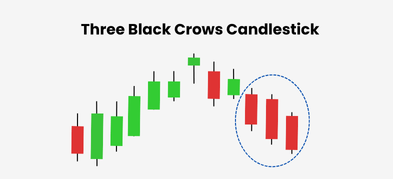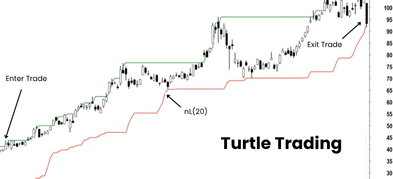Important Information
This website is managed by Ultima Markets’ international entities, and it’s important to emphasise that they are not subject to regulation by the FCA in the UK. Therefore, you must understand that you will not have the FCA’s protection when investing through this website – for example:
- You will not be guaranteed Negative Balance Protection
- You will not be protected by FCA’s leverage restrictions
- You will not have the right to settle disputes via the Financial Ombudsman Service (FOS)
- You will not be protected by Financial Services Compensation Scheme (FSCS)
- Any monies deposited will not be afforded the protection required under the FCA Client Assets Sourcebook. The level of protection for your funds will be determined by the regulations of the relevant local regulator.
Note: Ultima Markets is currently developing a dedicated website for UK clients and expects to onboard UK clients under FCA regulations in 2026.
If you would like to proceed and visit this website, you acknowledge and confirm the following:
- 1.The website is owned by Ultima Markets’ international entities and not by Ultima Markets UK Ltd, which is regulated by the FCA.
- 2.Ultima Markets Limited, or any of the Ultima Markets international entities, are neither based in the UK nor licensed by the FCA.
- 3.You are accessing the website at your own initiative and have not been solicited by Ultima Markets Limited in any way.
- 4.Investing through this website does not grant you the protections provided by the FCA.
- 5.Should you choose to invest through this website or with any of the international Ultima Markets entities, you will be subject to the rules and regulations of the relevant international regulatory authorities, not the FCA.
Ultima Markets wants to make it clear that we are duly licensed and authorised to offer the services and financial derivative products listed on our website. Individuals accessing this website and registering a trading account do so entirely of their own volition and without prior solicitation.
By confirming your decision to proceed with entering the website, you hereby affirm that this decision was solely initiated by you, and no solicitation has been made by any Ultima Markets entity.
I confirm my intention to proceed and enter this websiteForeign Currency Exchange: Fees & Best Rate Guide
In today’s financial markets, foreign currency exchange has become an essential part of global capital flow and personal financial planning. Whether for international travel, investment, or day-to-day currency exchange, it is crucial to understand the exchange process, spot exchange rates, and bank foreign currency conversion practices. Mastering key currency exchange strategies not only helps reduce transaction costs significantly but also makes both investing and traveling more efficient and effortless.
What Is Foreign Currency Exchange: Basic Concepts and Importance
Foreign currency exchange refers to the process of converting one currency into another, commonly used in international trade, travel, or investment. Most people obtain foreign currency through bank currency exchange or by buying and selling physical cash, while others compare exchange rates across different financial institutions using currency rate lookup platforms. Since currency exchange involves service fees and rate discrepancies between banks, it’s essential to understand various fee structures in addition to monitoring spot exchange rates before conducting any transaction.

The Difference Between Foreign Currency Cash Exchange and Spot Rates
Many people are unclear about the difference between foreign currency cash exchange and spot rates. Cash exchange refers to the physical exchange of banknotes, and banks typically apply different rates or fees compared to spot rates—the rates used for electronic transfers between bank accounts. This is because handling physical currency involves transportation, insurance, and other costs, which leads to slightly less favorable rates for cash exchange compared to spot transactions.
Key Considerations for Currency Exchange: Fees, Rates, and Restrictions
When conducting foreign currency exchange, it’s important not only to monitor the exchange rate trends but also to pay attention to service fees and local regulatory restrictions—such as those in Taiwan. The following details can significantly affect your final cost.
1. How to Calculate Currency Exchange Service Fees
Service fee calculation methods vary by bank or financial institution—they may charge a fixed fee or a percentage of the transaction amount. It is advisable to inquire about the fee details beforehand or check the institution’s website for the relevant terms. This helps avoid unnecessary costs due to overlooked charges. For frequent exchanges related to investment or fund transfers, it is even more crucial to compare fee structures across banks and platforms.
Let’s say you want to exchange NT$ into USD at a bank, and the exchange involves NT$100 as a fixed service fee, with the buy rate at NT$31.5 per USD. The calculation would be as follows:
- Exchange rate portion:USD 1,000 × 31.5 = TWD 31,500
- Service fee:Fixed TWD 100
- Total cost:31,500 + 100 = TWD 31,600
If another bank charges a 0.2% fee on the transaction amount, then the exchange cost is calculated as follows:
- Exchange rate portion: USD 1,000 × 31.5 = TWD 31,500
- Service fee:31,500 × 0.2% = TWD 63
- Total cost:31,500 + 63 = TWD 31,563
2. Which Bank Offers the Most Favorable Currency Exchange Rate
Different banks offer slightly different exchange rates and fee structures, so choosing the bank with the most favorable rate is crucial. In addition to comparing rates, you can also look out for promotional campaigns that sometimes offer lower exchange costs. Furthermore, if your transaction amount is large or if you use special accounts (such as VIP or wealth management accounts), the bank may offer even better rates.
Suppose the exchange rate between the New Taiwan dollar and the U.S. dollar is fluctuating, and Bank A offers a “cash selling rate” of TWD 31.4, while Bank B offers TWD 31.3. If you plan to exchange USD 2,000:
- At Bank A
- Exchange rate: TWD 31.4
- Amount payable: 2,000 × 31.4 = TWD 62,800
- At Bank B
- Exchange rate: TWD 31.3
- Amount payable: 2,000 × 31.3 = TWD 62,600
Just a 0.1 difference in the exchange rate can save you TWD 200. If the same bank also offers low or no service fees, your total exchange cost could be even lower. Therefore, comparing rates among multiple banks or using online currency rate comparison tools is a smart way to reduce costs and secure better rates.
3. Foreign Currency Exchange Restrictions in Taiwan
In Taiwan, foreign currency exchange is subject to certain rules and restrictions. For example, large-sum exchanges at banks may require prior declaration or supporting documentation. Some specific currencies may also have conversion limits. If trading foreign currency futures on the Taiwan Futures Exchange, it’s essential to pay attention to margin requirements and trading rules to ensure they align with your capital allocation strategy. It is recommended to consult relevant authorities or banks for detailed regulations before initiating large-scale transactions.
Advanced Foreign Currency Trading: Investment and Risk Management
For individuals engaging in more advanced capital deployment, foreign currency exchange goes beyond travel or basic currency conversion needs. It expands into investment-related areas, such as forex margin trading and cross-border asset allocation. If one can accurately grasp exchange rate fluctuations, it’s even possible to profit from market swings. However, it is crucial to emphasize the importance of risk management, as exchange rates are volatile and any oversight may result in losses.
Leverage and Trading Strategies
Using leverage in the forex market can amplify profits, but it also significantly increases risk. It is advisable to thoroughly understand the market structure and set stop-loss mechanisms before engaging in leveraged trading, to prevent substantial losses from unexpected market events. Investors may also reduce overall risk through diversification and by combining other asset classes, such as gold or futures.
Ultima Markets: Bringing You a More Flexible Foreign Currency Trading Environment
If you’re considering conducting foreign currency exchange or forex trading on a more professional platform, Ultima Markets offers a comprehensive and advanced suite of trading tools and services to help investors make more efficient decisions. Whether you’re a seasoned investor or just getting started in forex, you’ll find the right solution here.
Diverse Trading Products and Professional Support
Ultima Markets supports not only physical currency exchange but also enables easy access to the forex market through Contracts for Difference (CFDs). The platform provides technical analysis tools and professional customer support to help users stay up-to-date with spot exchange rates and market trends. If you want to learn more about platform features or how to operate them, refer to a live account for detailed information.
Simulated Trading Before You Begin
For those new to currency exchange or forex margin trading, it’s recommended to use a demo account for simulated trading. This allows you to become familiar with market volatility and transaction cost calculations, effectively reducing the risk to actual funds. You can also visit the Ultima Markets homepage for more market insights and investment tutorials.
Common FAQ: Foreign Currency Exchange Investment and Practice
Q: How is the foreign currency exchange fee calculated?
A: Banks or financial institutions may charge either a flat fee or a percentage of the transaction amount. The exact fee varies by institution, so it’s best to check their official website, contact customer service, or review contract terms in advance.
Q: Which bank offers the best foreign exchange rate?
A: No single bank consistently offers the best rates, as competition is fierce and banks frequently run promotions or offer VIP plans. It’s advisable to compare rates across multiple banks or negotiate better terms based on your transaction volume.
Q: What should I be aware of when exchanging foreign currency?
A: You should pay attention to fees, exchange rate fluctuations, and transaction restrictions. For large currency conversions, ask the bank or platform about any additional requirements and be mindful of the difference between banknote exchange rates and spot exchange rates.
Conclusion
In today’s globalized world, foreign currency exchange goes far beyond travel expenses or minor conversions—it can be a vital part of financial and investment planning. To gain an edge in the currency market, it’s crucial to understand spot exchange rates, fee structures, and services like foreign banknote exchanges offered by banks or the Taiwan Futures Exchange. Investors can also leverage professional platforms like Ultima Markets, utilizing technical analysis and flexible trading methods to improve asset allocation efficiency.












